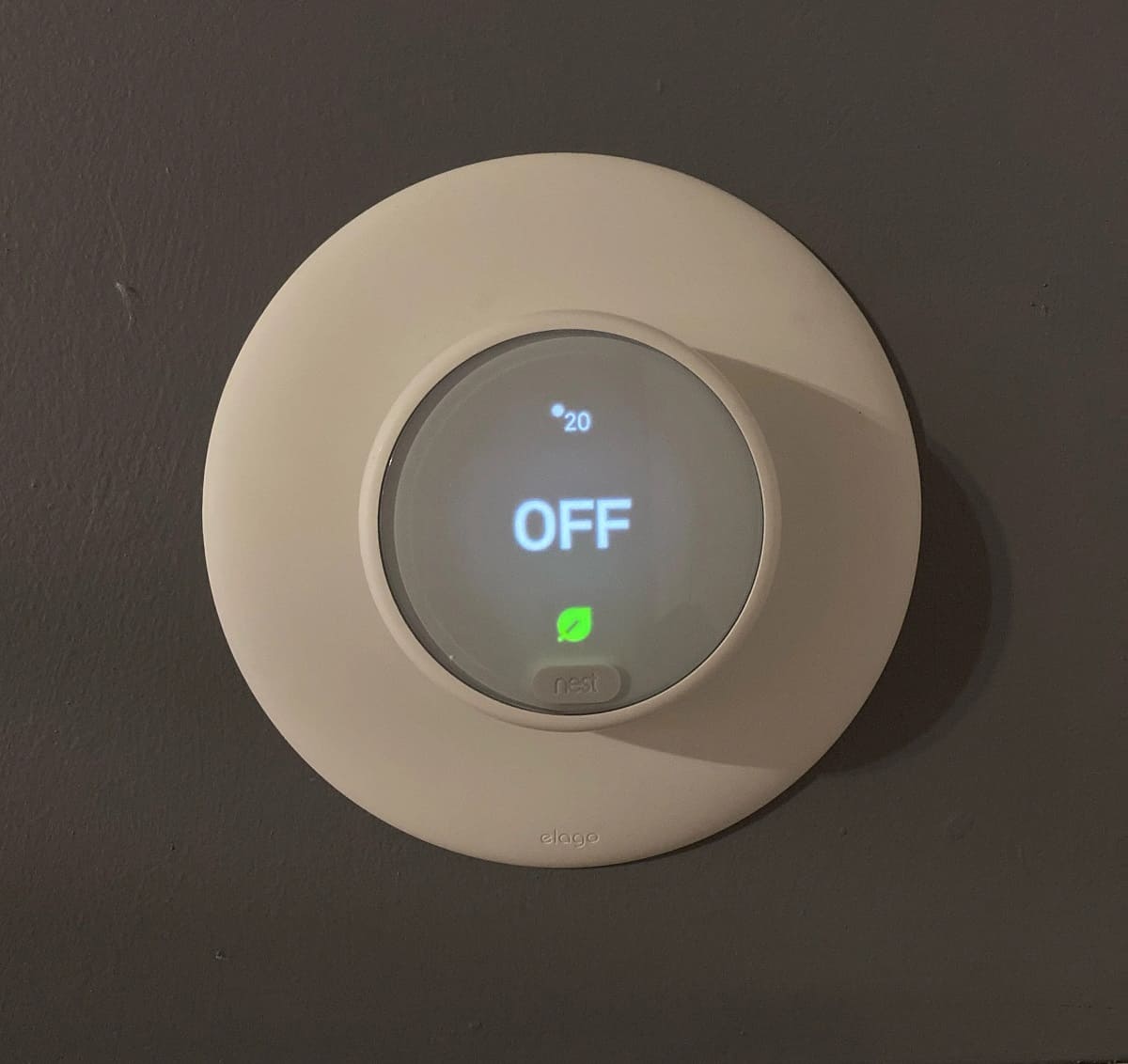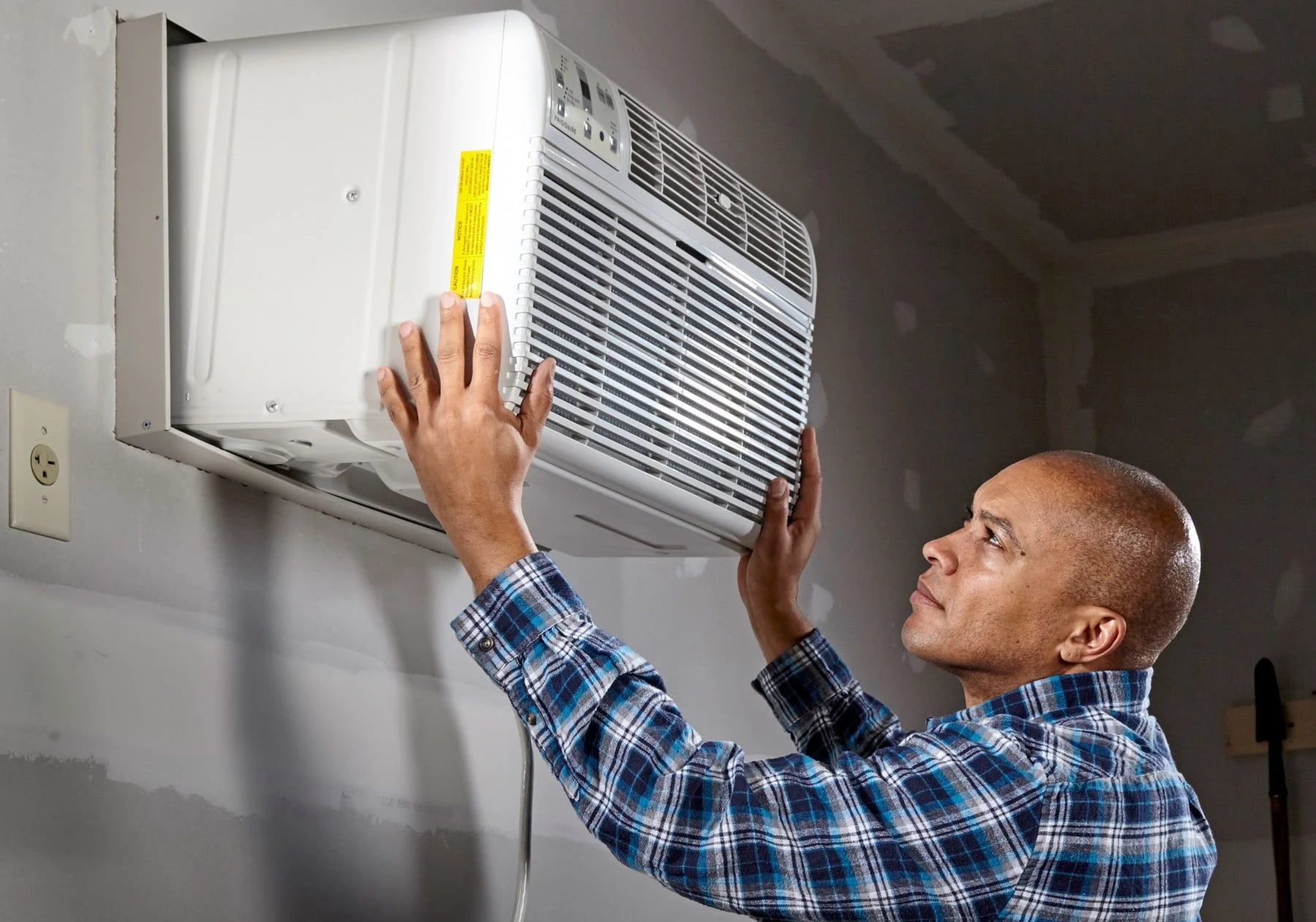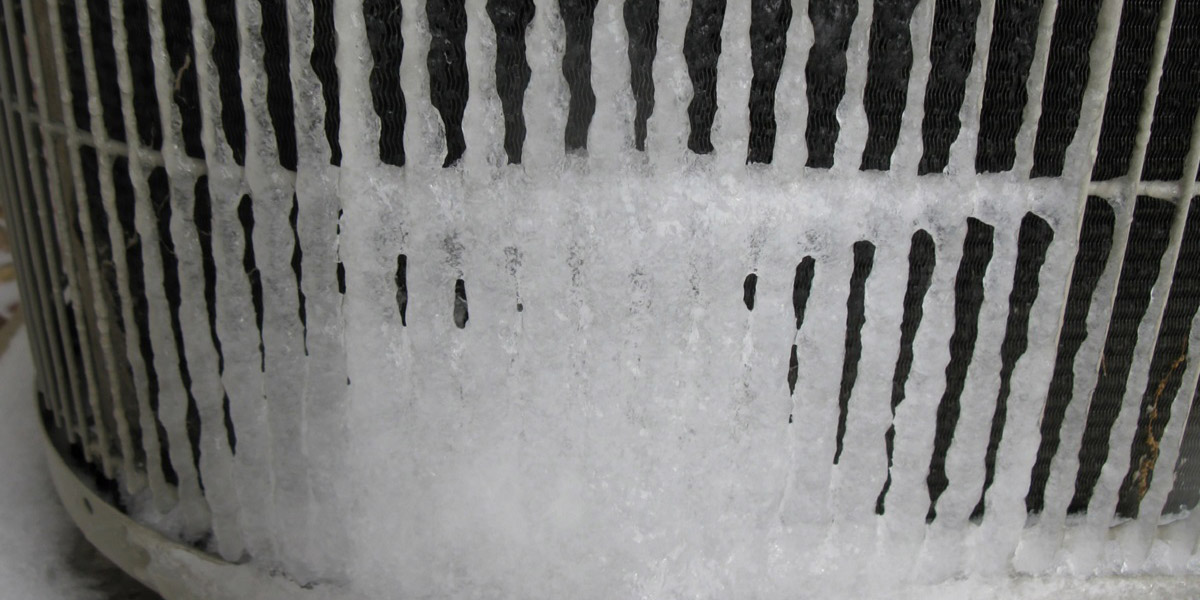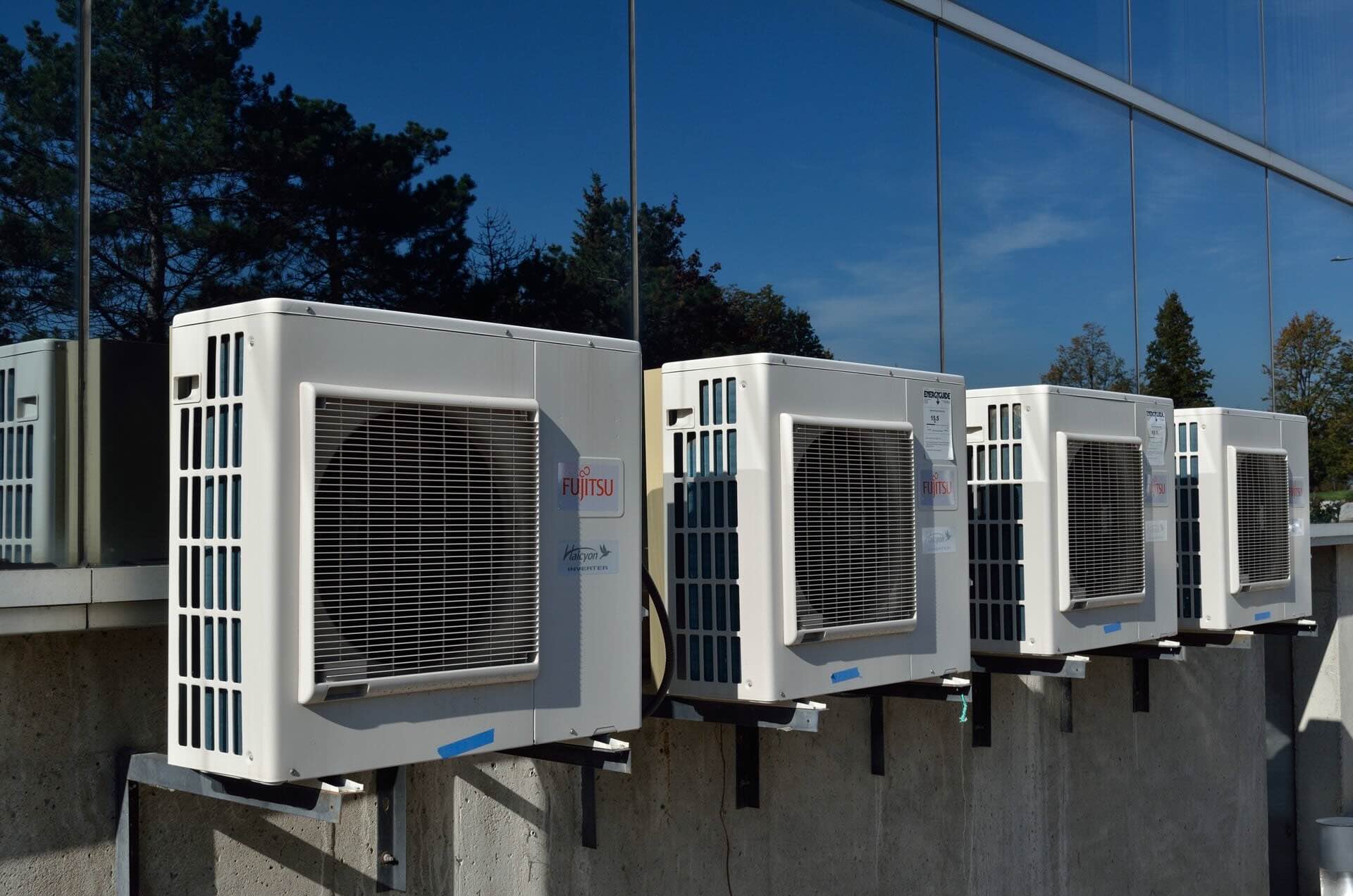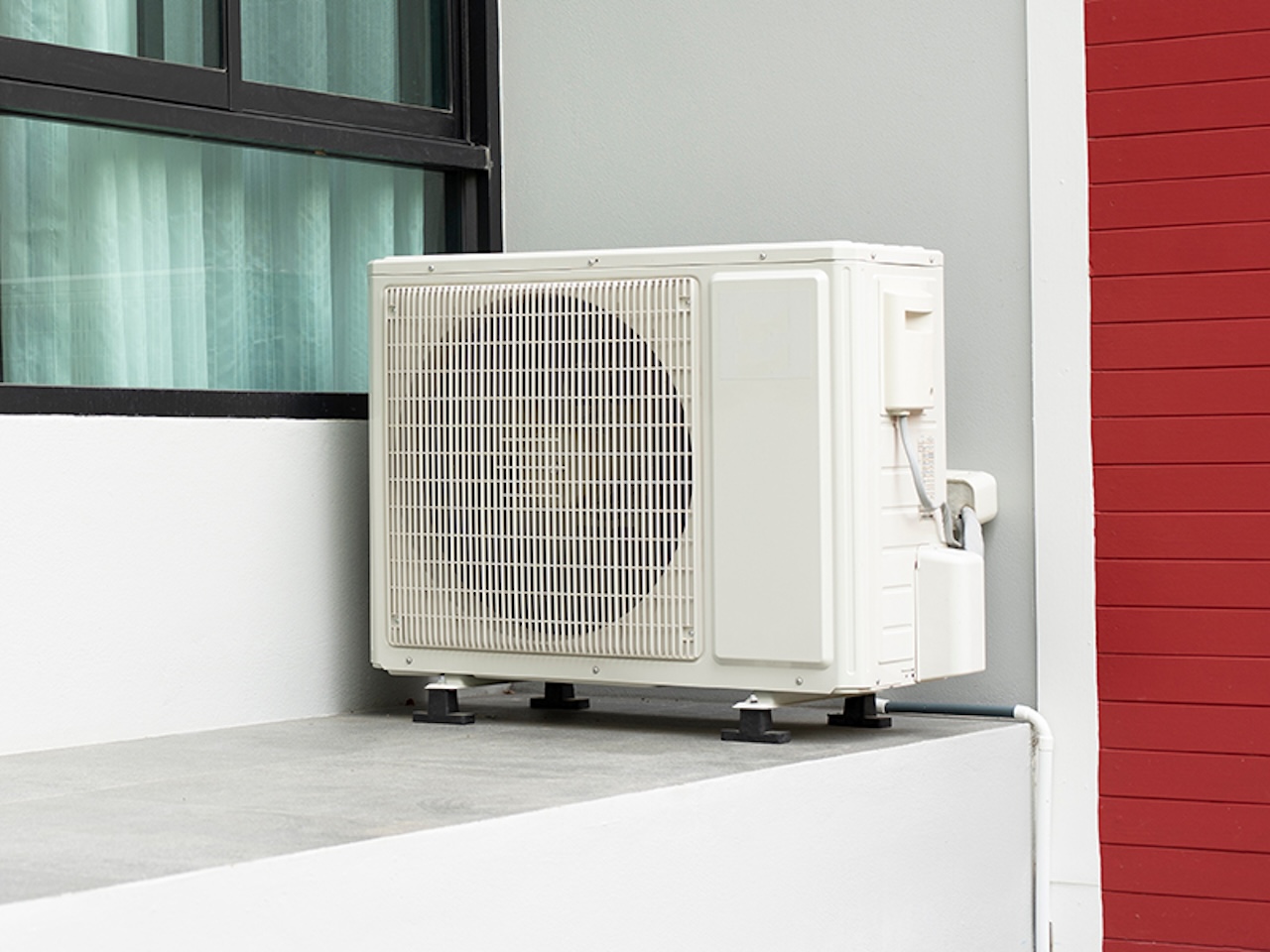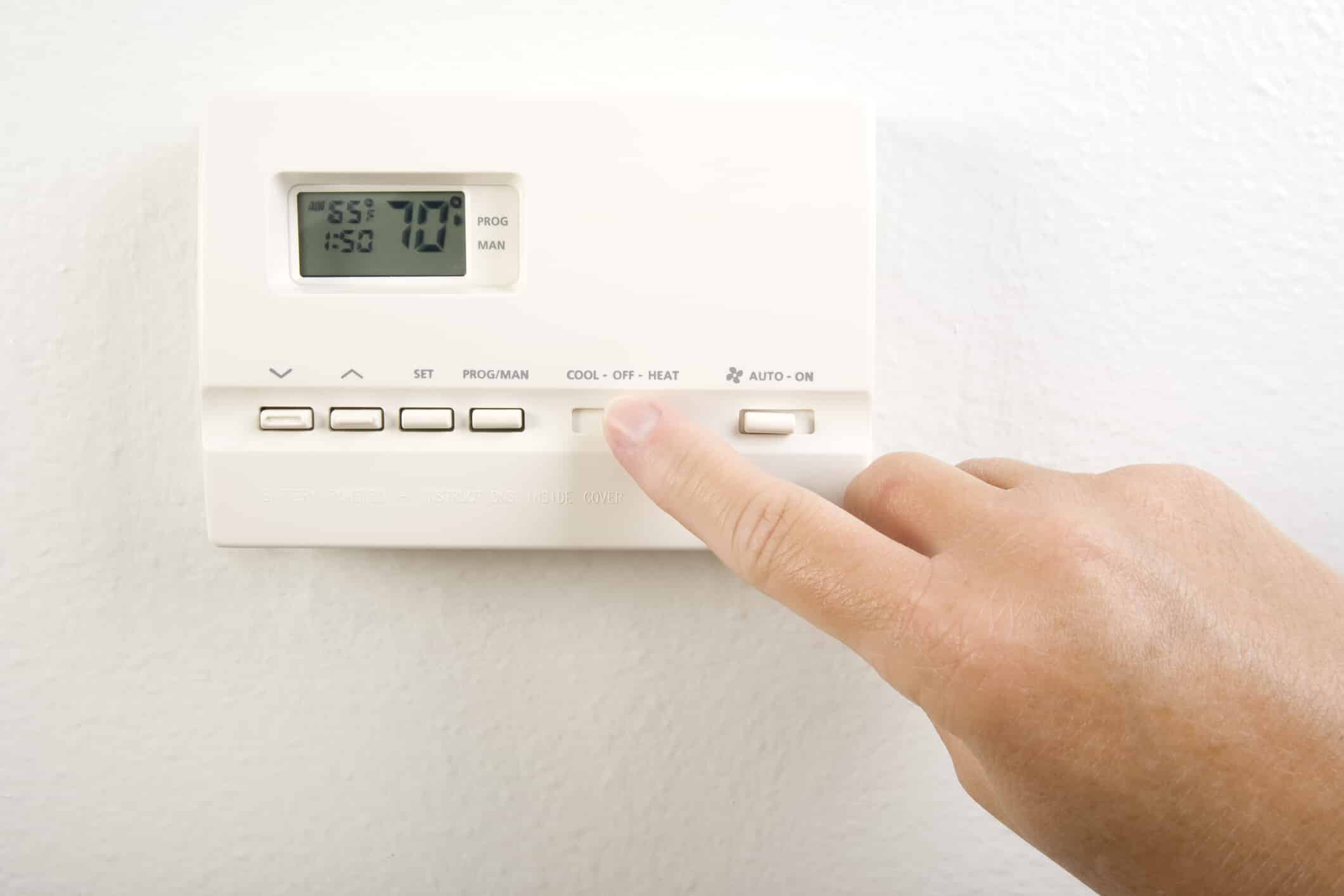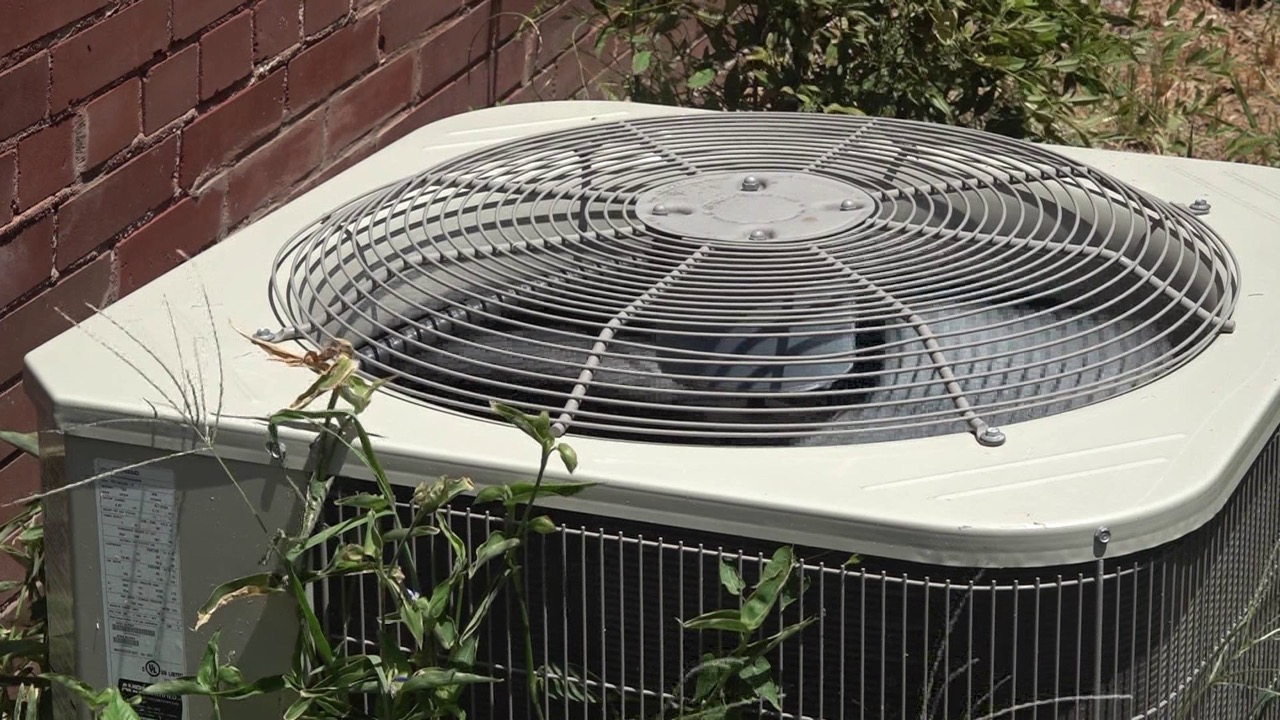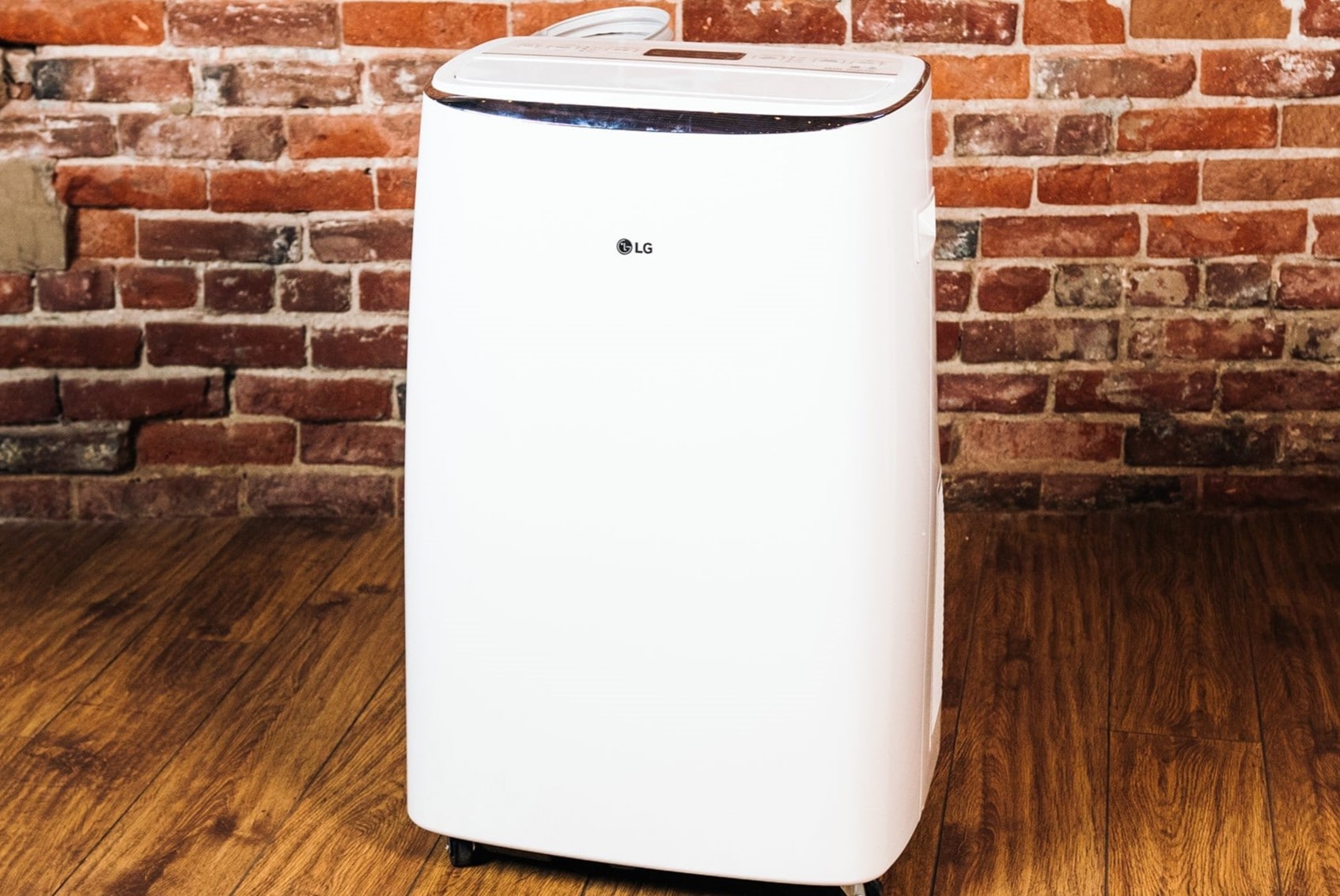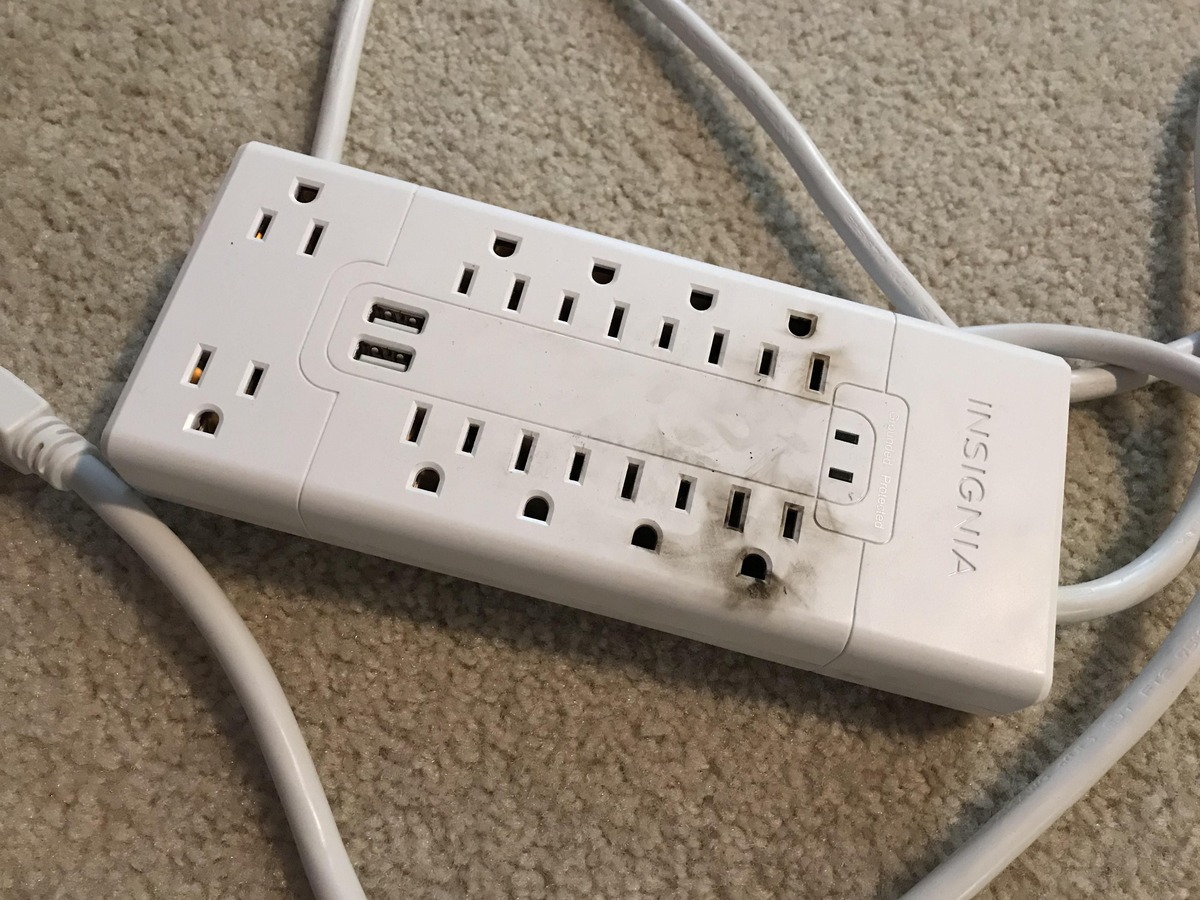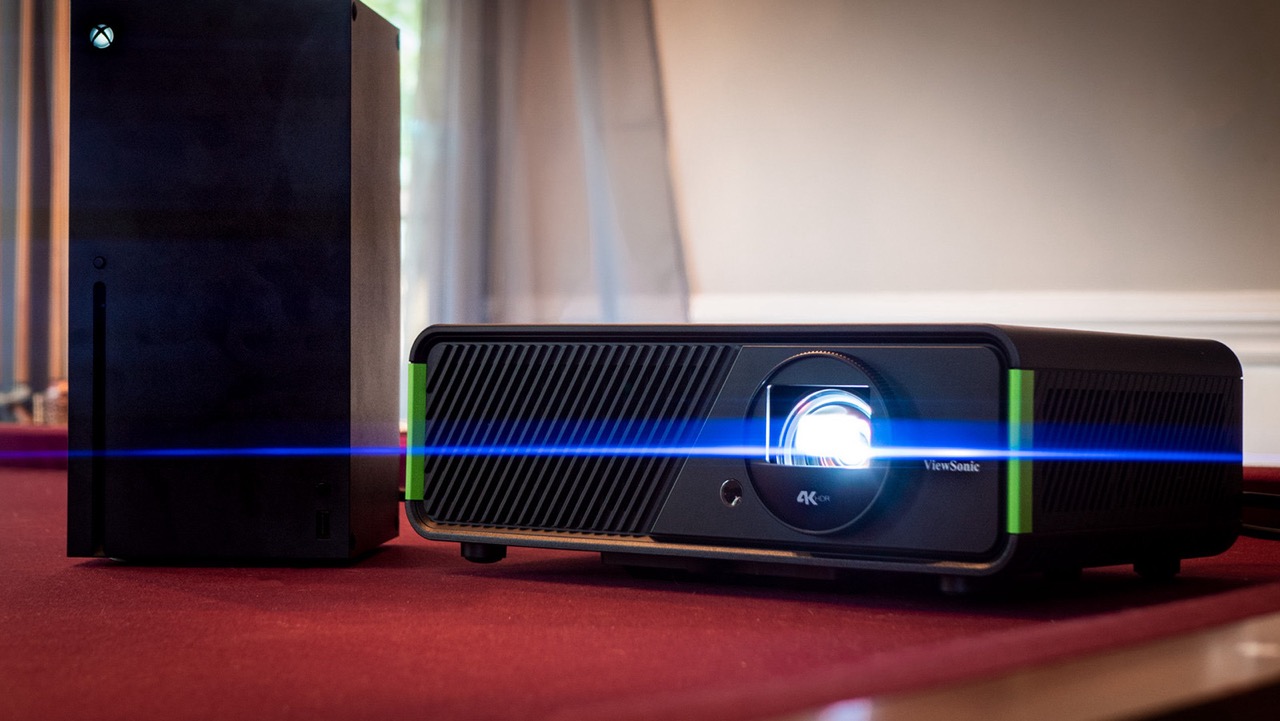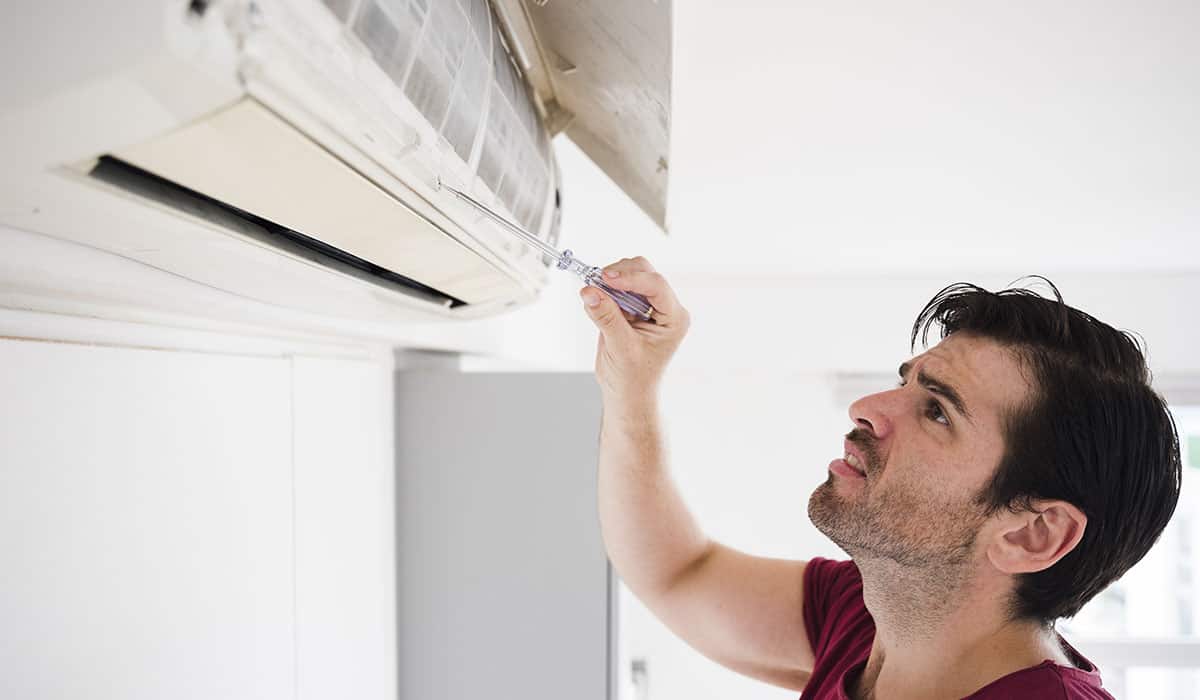Home>Home Maintenance>Why Is My Air Conditioner Not Turning Off
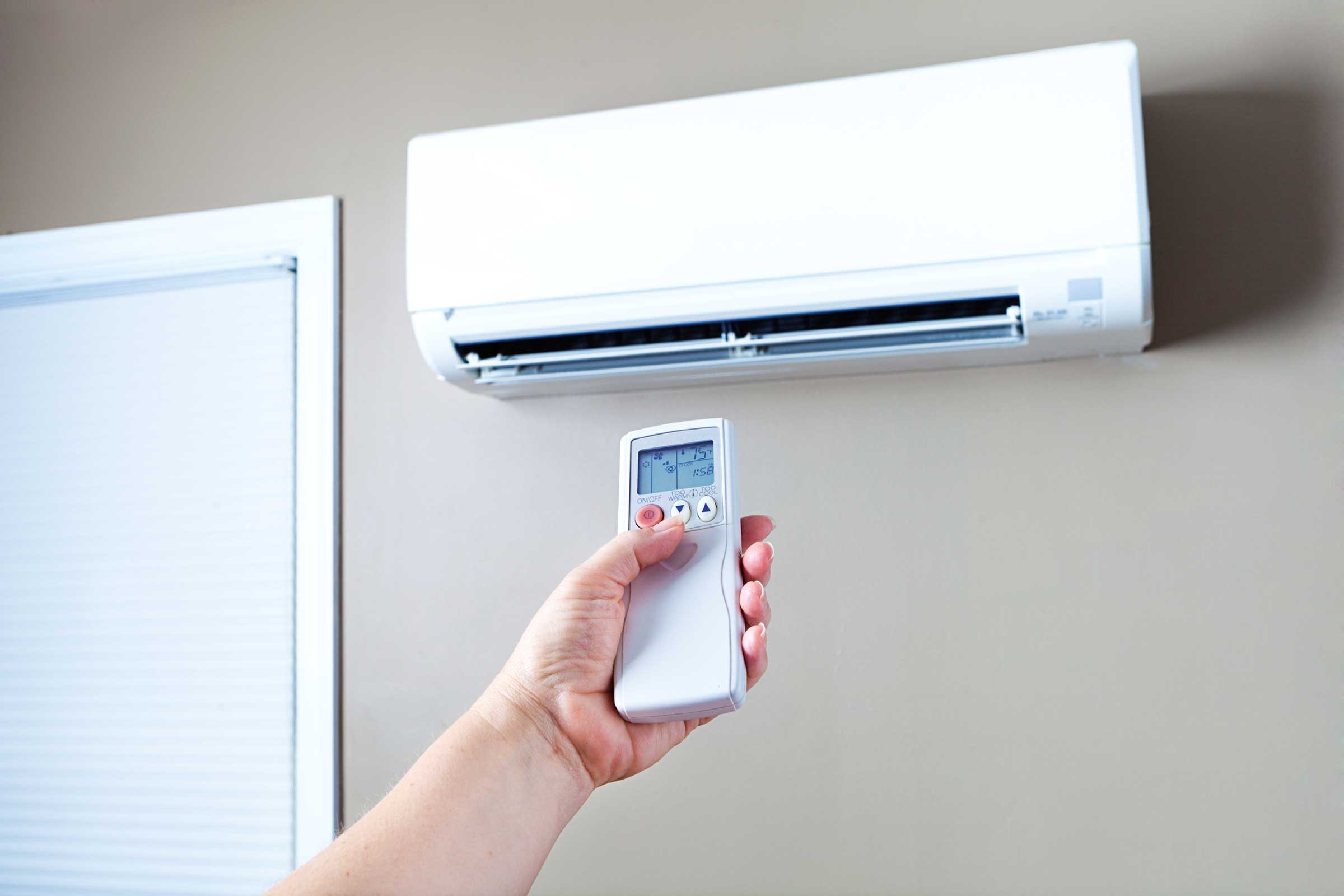

Home Maintenance
Why Is My Air Conditioner Not Turning Off
Modified: April 22, 2024
If your air conditioner is not turning off, it could be a sign of a home maintenance issue. Discover the common causes and find helpful solutions here.
(Many of the links in this article redirect to a specific reviewed product. Your purchase of these products through affiliate links helps to generate commission for Storables.com, at no extra cost. Learn more)
Introduction
Having an air conditioner that won’t turn off can be a frustrating and concerning problem. Not only can it lead to increased energy consumption and higher utility bills, but it can also put unnecessary strain on the system, potentially leading to costly repairs or even a complete breakdown. Understanding the possible reasons behind this issue can help you troubleshoot and resolve it more effectively.
There can be various reasons why your air conditioner is not turning off when it should. In this article, we will explore some of the common causes of this problem and provide troubleshooting steps to help you rectify the issue.
Before we dive in, it’s important to note that if you are not comfortable or experienced with HVAC systems, it’s always best to consult a professional technician to diagnose and fix the problem. They have the knowledge and expertise to safely handle these issues.
Key Takeaways:
- Keep your air conditioner running efficiently by checking thermostat settings, cleaning or replacing air filters, and ensuring proper airflow. Regular professional maintenance is crucial for preventing and resolving issues with your air conditioning system.
- If your air conditioner won’t turn off, check for thermostat issues, blocked airflow, and potential refrigerant leaks. Don’t hesitate to seek professional help for complex issues to ensure your system’s proper functioning and prolong its lifespan.
Read more: Why Is My Air Conditioner Not Turning On
Possible reasons why the air conditioner is not turning off
When your air conditioner seems to be running continuously without shutting off, there could be several underlying causes. Let’s take a closer look at some of the possible reasons:
- Thermostat issues: The thermostat acts as the control center for your air conditioner. If it is not functioning properly, it may not be sending the signal to turn off the cooling system when the desired temperature is reached. This can be due to a faulty thermostat sensor or wiring issues.
- Fan setting is incorrect: Most air conditioning systems offer different fan settings, such as “auto” and “on.” When set to “auto,” the fan will only run when the cooling system is operating. However, if the fan is set to “on,” it will run continuously, even when the cooling system is not actively cooling. Ensure that the fan setting is correctly set to “auto.”
- Faulty control board: The control board is responsible for regulating various functions of the air conditioning system. If it malfunctions, it may fail to send the signal to turn off the compressor or the entire system. A defective control board may require professional repair or replacement.
- Blocked airflow: Restricted airflow can cause the air conditioner to run longer than necessary. Check for any obstructions around the outdoor unit, such as debris, plants, or furniture, that may be blocking the airflow. Additionally, dirty or clogged air filters can impede the air circulation, leading to prolonged operation.
- Refrigerant leaks: Insufficient refrigerant levels can result in the air conditioner continuously running without achieving the desired temperature. If you suspect a refrigerant leak, it is crucial to have it addressed by a professional HVAC technician, as handling refrigerant requires specialized training and equipment.
- Dirty or clogged filters: Over time, air filters can become coated with dust, dirt, and debris, impairing the efficiency of the air conditioner. When the system struggles to pull in air, it may continue running to compensate for the reduced airflow. Regularly clean or replace the filters to ensure optimal performance.
- Electrical problems: Faulty wiring or electrical issues can also contribute to a situation where the air conditioner does not turn off. Problems with the control circuit, relays, or wiring connections can disrupt the normal operation of the system. These issues should be addressed by a qualified professional to avoid safety hazards.
Identifying the specific reason behind your air conditioner’s failure to turn off can be challenging. It may require a combination of troubleshooting steps and professional help. In the next section, we will provide some general troubleshooting steps to help you address this issue.
Thermostat issues
The thermostat is a crucial component of your air conditioning system as it controls when the system turns on and off based on the desired temperature settings. If there are issues with the thermostat, it may not correctly communicate with the cooling system, causing it to run continuously. Here are a few thermostat-related problems that could be causing your air conditioner not to turn off:
- Faulty thermostat sensor: The thermostat sensor is responsible for detecting the temperature in the room and signaling the cooling system to turn on or off. If the sensor is malfunctioning, it may not accurately read the temperature, leading to improper cooling control. In such cases, the air conditioner may continue running even if the desired temperature is reached. Consider having the sensor checked and replaced if necessary.
- Wiring issues: Faulty wiring connections can disrupt the communication between the thermostat and the air conditioner. Loose or damaged wires can cause intermittent signals or complete loss of connectivity, making it difficult for the thermostat to control the system effectively. Inspecting the wiring and ensuring secure connections can help resolve this issue.
- Programmable thermostat settings: If you have a programmable thermostat, incorrect programming or improper settings could be the reason behind the air conditioner not turning off. Double-check the programming to ensure that the desired temperature settings and schedule are correctly inputted. Some thermostats may also have vacation mode or hold functions that can unintentionally cause the system to run continuously.
If you suspect thermostat issues, you can perform some basic troubleshooting steps before seeking professional help:
- Start by checking the thermostat settings. Ensure that the temperature is set to a desired level and that it is not accidentally set to the “continuous” or “on” mode.
- Clean the thermostat’s housing and internal components. Dust and debris accumulation can affect its functionality. Gently remove the cover and use a soft brush or compressed air to clean the internal parts. Be cautious not to touch any electrical components or wiring.
- Inspect the wiring connections. Turn off the power to the air conditioning system, remove the thermostat cover, and check for loose or damaged wiring. If you notice any issues, consult a professional HVAC technician to safely handle the wiring repairs.
- Consider recalibrating the thermostat. Some thermostats allow for recalibration to ensure accurate temperature readings. Check the manufacturer’s instructions to find out if your thermostat can be recalibrated and follow the recommended steps.
- If none of these steps resolve the issue, it is best to consult a qualified HVAC technician. They have the expertise and specialized tools to diagnose and repair thermostat-related problems.
By addressing thermostat issues, you can potentially resolve the problem of your air conditioner not turning off. However, if this does not solve the issue, it’s essential to explore other possible causes, which will be discussed in the subsequent sections of this article.
Fan setting is incorrect
The fan setting on your air conditioning system plays a crucial role in its operation. It determines when the fan runs, either only when the cooling system is actively cooling or continuously regardless of whether the cooling system is operating. If the fan is set to “on” instead of “auto,” your air conditioner may not turn off even when the desired temperature is reached. Here are some factors related to the fan setting that could be causing your air conditioner to run continuously:
- Incorrect fan mode: If your air conditioner has a “fan mode” option, it may be set to “on” instead of “auto.” In “on” mode, the fan will run continuously, even if the cooling system is not actively cooling. This can lead to the illusion of the air conditioner not turning off. Make sure to set the fan mode to “auto” so that the fan operates only when the cooling system is running.
- Circulation mode: Some air conditioning units have a “circulation” mode, which allows the fan to run intermittently even when the cooling system is not actively cooling. While this can be beneficial for air circulation and filtration purposes, it may give the impression that the air conditioner is running continuously. Review the user manual or consult with an HVAC professional to understand how the circulation mode works and adjust the settings accordingly.
To fix the fan setting issue and ensure that your air conditioner turns off when it should, consider the following steps:
- Locate the fan setting on your thermostat or control panel. It may be labeled as “fan mode” or “fan control.”
- Switch the fan setting from “on” to “auto.” This ensures that the fan runs only when the cooling system is actively cooling the air.
- Check the user manual for your specific air conditioning unit to see if there are any additional fan settings or modes that need adjustment.
- Wait for a few minutes to see if the air conditioner turns off after changing the fan setting. It may take a short while for the system to adjust to the new settings.
If changing the fan setting to “auto” does not resolve the issue and your air conditioner continues to run without turning off, there may be other underlying causes that need to be addressed. In the next sections, we will explore other potential reasons and provide troubleshooting steps to help you diagnose and rectify the problem.
Faulty control board
The control board, also known as the circuit board or PCB (Printed Circuit Board), is the central control unit of your air conditioning system. It regulates various functions and communicates with different components to ensure the system operates smoothly. However, if the control board malfunctions, it can disrupt the normal operation of the air conditioner, causing it to run continuously. Here are some factors related to a faulty control board that could be causing your air conditioner not to turn off:
- Defective relay: The control board contains relays, which are responsible for controlling the power supply to different parts of the air conditioning system. If a relay becomes faulty or sticks in the “on” position, it can continuously supply power to the compressor or fan motors, preventing the system from turning off.
- Damaged control board components: Over time, the control board components may degrade due to wear and tear, power surges, or other electrical issues. Damaged or burned-out components can affect the functionality of the control board, causing it to malfunction and fail to send the signal to turn off the air conditioner when necessary.
- Corrosion or contamination: Exposure to moisture or contaminants can cause corrosion on the control board and its connections, leading to poor electrical conductivity and malfunctioning. This can affect the ability of the control board to effectively regulate the air conditioning system, resulting in continuous operation.
If you suspect a faulty control board as the cause of your air conditioner not turning off, it’s crucial to involve a professional HVAC technician for proper diagnosis and repair. They will have the expertise and necessary equipment to safely handle control board-related issues. However, before seeking professional help, you can perform some basic troubleshooting steps:
- Turn off the power to the air conditioning system to prevent any mishaps during the troubleshooting process.
- Visually inspect the control board for any visible signs of damage, such as burned or melted components, loose wiring connections, or corrosion. Take note of any noticeable issues.
- If you identify any damaged components or wiring connections, it’s important not to attempt repairs yourself unless you have the necessary expertise. Instead, contact a professional technician to handle the repairs or replacement.
- Check for any loose connections and ensure they are properly aligned and secured. Be careful not to touch any electrical components without appropriate precautionary measures.
- At this point, it’s recommended to contact a qualified HVAC technician to diagnose and repair the control board issue. They may need to perform specific tests and use specialized tools to accurately determine the cause of the problem.
Remember, the control board is a critical component of your air conditioning system, and tampering with it without the proper knowledge and experience can result in further damage or safety hazards. Therefore, it’s always best to leave control board repairs to professionals.
In the next sections, we will continue exploring other potential causes for your air conditioner not turning off and provide troubleshooting steps to help you address the issue effectively.
Read more: How To Turn Off Hotel Air Conditioner
Blocked airflow
Blocked airflow is a common issue that can prevent your air conditioner from turning off. When the airflow is restricted, the system may struggle to reach the desired temperature, causing it to run continuously. Here are a few factors related to blocked airflow that could be causing your air conditioner not to turn off:
- Outdoor unit obstructions: Take a look at the outdoor unit of your air conditioner. Ensure there are no objects such as furniture, plants, or debris obstructing the airflow around the unit. These obstructions can impede the heat exchange process and cause the system to run longer than necessary. Clear any obstacles to allow for proper airflow.
- Dirty or clogged condenser coils: Over time, the condenser coils located in the outdoor unit can accumulate dirt, dust, and debris. This buildup restricts airflow and reduces the efficiency of the air conditioner. It can cause the system to work harder and longer to provide the desired cooling, leading to continuous operation. Clean the condenser coils regularly to maintain optimal airflow.
- Blocked vents or registers: Check the vents or registers inside your home to ensure they are not blocked by furniture, curtains, or other objects. Blocked vents restrict the airflow, affecting the temperature distribution and forcing the air conditioner to run longer to compensate. Keep the vents clear and unobstructed to maintain proper airflow.
- Dirty or clogged air filters: Air filters are responsible for trapping dust, dirt, and other airborne particles to improve indoor air quality. However, when the air filters become dirty or clogged, they restrict the airflow and reduce the system’s efficiency. This can cause the air conditioner to run continuously as it struggles to maintain the desired temperature. Clean or replace the air filters regularly to ensure proper airflow.
- Ductwork issues: Damaged or poorly installed ductwork can lead to airflow problems. Leaks, improper insulation, or disconnected ducts can result in air loss or reduced airflow to specific areas of your home. This imbalance can cause the air conditioner to run longer in an attempt to compensate for the compromised airflow. Consult a professional HVAC technician to inspect and address any ductwork-related issues.
To address blocked airflow and help your air conditioner turn off when it should, you can take the following troubleshooting steps:
- Inspect the outdoor unit and clear any obstructions around it. Remove debris, trim foliage, and ensure no objects are blocking the airflow.
- Clean the condenser coils in the outdoor unit using a soft brush or a coil cleaning solution. Follow the manufacturer’s instructions and exercise caution to avoid damaging the coils.
- Check all vents and registers inside your home to ensure they are not obstructed. Rearrange furniture or remove any objects that may impede the airflow through the vents.
- Clean or replace the air filters according to the manufacturer’s recommendations, typically every 1-3 months. This helps maintain good airflow and optimal system performance.
- If you suspect any ductwork issues, consult a professional HVAC technician to inspect and repair the ducts as needed.
By addressing blocked airflow, you can improve the efficiency of your air conditioning system and allow it to turn off when it reaches the desired temperature. However, if the problem persists, continue reading the next sections to explore other potential causes for your air conditioner not turning off.
Check the thermostat settings to ensure it’s not set to “on” instead of “auto.” If it’s still running, there may be a problem with the thermostat or the wiring. It’s best to call a professional to diagnose and fix the issue.
Refrigerant leaks
Refrigerant plays a vital role in the cooling process of your air conditioning system. It absorbs heat from the indoor air and releases it outside, allowing for efficient cooling. However, if there is a refrigerant leak, it can disrupt the cooling process and prevent your air conditioner from turning off. Here are some factors related to refrigerant leaks that could be causing your air conditioner not to turn off:
- Damaged refrigerant lines: Refrigerant lines can develop leaks due to corrosion, physical damage, or poor installation. These leaks result in a gradual loss of refrigerant, which affects the overall cooling capacity of the system. When the refrigerant level drops below the required amount, the air conditioner may run continuously in an attempt to achieve the desired temperature.
- Loose fittings or valves: The fittings and valves that connect the refrigerant lines and components can sometimes become loose over time. This can lead to refrigerant leaks, causing the air conditioner to run continuously to compensate for the loss. Tightening or repairing the fittings and valves can help resolve the issue.
- Coil corrosion: The evaporator coils and condenser coils in your air conditioner are responsible for heat exchange and cooling. If these coils develop corrosion, it can lead to refrigerant leaks. Corrosion can occur due to exposure to moisture or chemicals, resulting in the inefficient operation of the system and continuous running.
If you suspect a refrigerant leak as the cause of your air conditioner not turning off, it’s important to involve a professional HVAC technician. Dealing with refrigerant requires specialized training and equipment, and improper handling can be hazardous to both your health and the environment. However, you can perform some initial troubleshooting steps to confirm the presence of a refrigerant leak:
- Listen for hissing or bubbling sounds near the refrigerant lines or the air conditioning unit. These sounds may indicate a refrigerant leak.
- Inspect the refrigerant lines for any signs of oil stains or residue. Refrigerant leaks often leave behind oil stains, indicating the presence of a leak.
- Observe the cooling performance and energy consumption of your air conditioner. If your system is running continuously without achieving the desired temperature or if your energy bills have significantly increased, it could be a sign of a refrigerant leak.
If you suspect a refrigerant leak based on these signs, it is essential to contact a professional HVAC technician. They will perform a thorough inspection, locate the source of the leak, repair any damaged components, and recharge the refrigerant to the appropriate level.
Addressing refrigerant leaks not only helps your air conditioner turn off when it should but also ensures optimal cooling efficiency and prevents further damage to the system. However, if the issue persists even after resolving potential refrigerant leaks, continue reading the next sections to explore other potential causes for your air conditioner not turning off.
Dirty or clogged filters
Dirty or clogged air filters can significantly impact the performance of your air conditioning system, potentially causing it to run continuously. Air filters are responsible for trapping dust, dirt, and other airborne particles, preventing them from circulating throughout your home. However, when the filters become dirty or clogged, they restrict airflow, hindering the cooling process and forcing the air conditioner to work harder. Here are some factors related to dirty or clogged filters that could be causing your air conditioner not to turn off:
- Reduced airflow: When the air filters are dirty or clogged, the amount of airflow passing through the system is diminished. This can lead to an imbalance in temperature, as the air conditioner struggles to distribute cool air effectively. As a result, the system may continue to run in an attempt to reach the desired temperature setting.
- Frozen evaporator coil: Reduced airflow caused by dirty filters can also lead to the freezing of the evaporator coil. When the coil freezes, the air conditioner cannot properly absorb the heat from the indoor air, resulting in a continuous operation to reach the desired cooling level. Dirty filters exacerbate this issue by restricting airflow even more.
- Increased energy consumption: A dirty or clogged air filter causes the air conditioner to work harder and longer to compensate for the restricted airflow. This increased workload can lead to higher energy consumption, resulting in higher utility bills. Regularly cleaning or replacing the air filters helps maintain optimal airflow and efficiency.
To address dirty or clogged filters and help your air conditioner turn off when it should, consider the following steps:
- Locate the air filters in your air conditioning system. They are typically located in the return air duct, in a slot near the furnace or air handler.
- Inspect the filters for build-up of dust, dirt, or debris. If they appear dirty or clogged, they need to be cleaned or replaced.
- If the filters are reusable, clean them according to the manufacturer’s instructions. This usually involves gently vacuuming or rinsing the filters to remove the accumulated dust. Allow the filters to dry completely before reinstalling them.
- If the filters are disposable, replace them with new ones of the same size and type. Make sure to install the filters correctly, following the arrows or instructions on the filter indicating the proper airflow direction.
- Establish a regular maintenance schedule for your air filters. Check them monthly and clean or replace them as necessary. Consider factors such as pets, allergies, and environmental conditions that may require more frequent filter changes.
- In addition to maintaining clean filters, ensure that the airflow vents and registers in your home are clean and unobstructed. Remove any dust or debris from the vents to allow for optimal airflow.
By addressing dirty or clogged filters, you improve the airflow and efficiency of your air conditioning system. This helps your air conditioner turn off when it reaches the desired temperature, reducing energy consumption and promoting better indoor air quality. However, if the issue persists, continue reading the next sections to explore other potential causes for your air conditioner not turning off.
Electrical problems
Electrical problems can be a potential cause for your air conditioner not turning off. Issues with the electrical components of the system can disrupt the normal operation and prevent the air conditioner from shutting down when it should. Here are some factors related to electrical problems that could be causing your air conditioner to run continuously:
- Faulty wiring: Incorrectly wired connections can prevent the air conditioner from receiving the proper signals to shut off. Loose, damaged, or crossed wires can disrupt the electrical flow and cause the system to continue running. It’s crucial to consult a professional electrician to address any wiring issues.
- Malfunctioning thermostat: A malfunctioning thermostat can lead to incorrect temperature readings or failure to send the signal to turn off the air conditioner. This can be due to issues with the thermostat’s wiring, sensor, or internal components. Have a professional technician inspect and potentially replace the thermostat if necessary.
- Tripped circuit breaker: The air conditioner’s electrical circuit may be connected to a dedicated circuit breaker in the electrical panel. If the circuit breaker trips, it can cut off power to the air conditioner, causing it to run continuously. Check the electrical panel for any tripped circuit breakers and reset them if needed. However, if the breaker trips repeatedly, it’s important to have a professional electrician investigate the underlying cause.
- Faulty capacitors or relays: The capacitors and relays in the air conditioning system control the flow of electricity to various components. If these electrical components become faulty, they may not function properly, leading to continuous operation. A professional HVAC technician can diagnose and replace the faulty capacitors or relays.
- Misaligned contactor: The contactor is responsible for controlling the flow of electricity to the compressor and fan motors. If the contactor becomes misaligned or worn out, it may not engage or disengage properly, causing the air conditioner to run continuously. Contact a professional technician to inspect and adjust or replace the contactor as needed.
If you suspect electrical problems as the cause of your air conditioner not turning off, it’s crucial to involve a professional technician or electrician for proper diagnosis and repair. Dealing with electricity can be dangerous, and incorrect handling can result in serious injuries or damage to your system. However, you can perform some basic troubleshooting steps before seeking professional help:
- Check the thermostat and ensure it is set to the desired temperature. If possible, try adjusting the temperature settings or switching the thermostat to a different mode to see if it triggers the air conditioner to turn off.
- Inspect the electrical panel and look for any tripped circuit breakers. Reset any tripped breakers and observe if the air conditioner turns off. However, if the breaker trips again immediately or repeatedly, refrain from resetting it and consult a professional electrician.
- Visually inspect the wiring connections within the air conditioning system. Look for loose or damaged wires. If you notice any issues, it’s best to have a professional technician or electrician handle the repairs.
- If you suspect faulty capacitors or relays, it’s important to contact a professional HVAC technician. These components involve high voltage and require specialized training and equipment for safe handling.
Remember, electrical problems should be addressed by qualified professionals to ensure safety and prevent further damage to your air conditioning system. In the next section, we will provide some general troubleshooting steps to help you address the issue of your air conditioner not turning off.
Troubleshooting steps to fix the issue
If your air conditioner is not turning off as it should, there are several troubleshooting steps you can follow to help resolve the issue. These steps can help you identify and address common causes that might be preventing your air conditioner from shutting off. Here are some general troubleshooting steps:
- 1. Check thermostat settings: Ensure that the thermostat temperature and mode settings are correct. Make sure the thermostat is set to the desired temperature and cooling mode. Double-check that the fan setting is set to “auto,” not “on.”
- 2. Clean or replace air filters: Dirty or clogged air filters can restrict airflow, causing the air conditioner to run continuously. Clean or replace the air filters according to the manufacturer’s instructions. This helps improve airflow and overall system performance.
- 3. Inspect for airflow obstructions: Check both the outdoor unit and indoor vents for any obstructions that might be blocking airflow. Clear away debris, vegetation, or furniture that could impede the flow of air into and out of the system.
- 4. Test the thermostat: Verify if the thermostat is functioning correctly by turning the temperature down a few degrees below the ambient temperature. If the air conditioner does not turn on, it may indicate a problem with the thermostat. Consider consulting a professional technician to inspect and potentially replace the thermostat.
- 5. Check for refrigerant leaks: Look for signs of oil stains, hissing sounds, or rapidly rising utility bills, which might indicate a refrigerant leak. If you suspect a leak, contacting a professional HVAC technician is essential for proper diagnosis, repair, and recharging the refrigerant system.
- 6. Inspect electrical components: Check for loose or damaged wiring connections, tripped circuit breakers, and faulty capacitors or relays. However, it’s crucial to let a professional technician or electrician handle electrical repairs to avoid potential safety hazards.
- 7. Schedule professional maintenance: Regular professional maintenance is crucial for keeping your air conditioning system in optimal condition. A qualified HVAC technician can inspect and clean your system, identify potential issues, and provide necessary repairs or adjustments to ensure it operates efficiently.
If none of the troubleshooting steps resolve the issue or if you are unsure about performing these steps yourself, it’s always recommended to contact a professional HVAC technician. They have the expertise and experience to diagnose the problem accurately and provide you with the appropriate solutions.
Remember, proper maintenance and care of your air conditioning system can help prevent issues and ensure its optimal performance. By following these troubleshooting steps or seeking professional assistance, you can resolve the issue of your air conditioner not turning off and enjoy a comfortably cooled home.
Conclusion
Air conditioners that don’t turn off can be a frustrating problem, but understanding the potential causes and troubleshooting steps can help you address the issue effectively. In this article, we explored several common reasons why your air conditioner may not be turning off – thermostat issues, incorrect fan settings, faulty control board, blocked airflow, refrigerant leaks, dirty or clogged filters, and electrical problems.
If you suspect any of these issues, it’s essential to perform the appropriate troubleshooting steps. Check your thermostat settings, ensure the fan setting is set to “auto,” and clean or replace any dirty or clogged filters. Additionally, inspect for airflow obstructions, such as debris around the outdoor unit or blocked vents and registers indoors. If necessary, contact a professional HVAC technician to diagnose and address more complex issues like faulty control boards, refrigerant leaks, or electrical problems.
Regular professional maintenance is also crucial for preventing and resolving issues with your air conditioning system. Scheduling annual maintenance with an HVAC technician can help keep your system in optimal condition, ensure proper airflow, and catch any potential problems early.
Remember, safety should always be a priority when dealing with electrical components or refrigerant. If you’re unsure about performing troubleshooting steps or if the issue persists after attempting the steps mentioned in this article, it’s best to consult a professional HVAC technician or electrician who can safely diagnose and resolve the problem.
By addressing the root causes and taking appropriate actions, you can restore normal operation to your air conditioner and achieve a comfortable and energy-efficient home. Don’t hesitate to seek professional help when needed, as their expertise and knowledge will ensure your system’s proper functioning and prolong its lifespan.
Stay proactive in maintaining your air conditioning system, and enjoy the cool comfort it provides while saving energy and avoiding unnecessary expenses.
Frequently Asked Questions about Why Is My Air Conditioner Not Turning Off
Was this page helpful?
At Storables.com, we guarantee accurate and reliable information. Our content, validated by Expert Board Contributors, is crafted following stringent Editorial Policies. We're committed to providing you with well-researched, expert-backed insights for all your informational needs.
